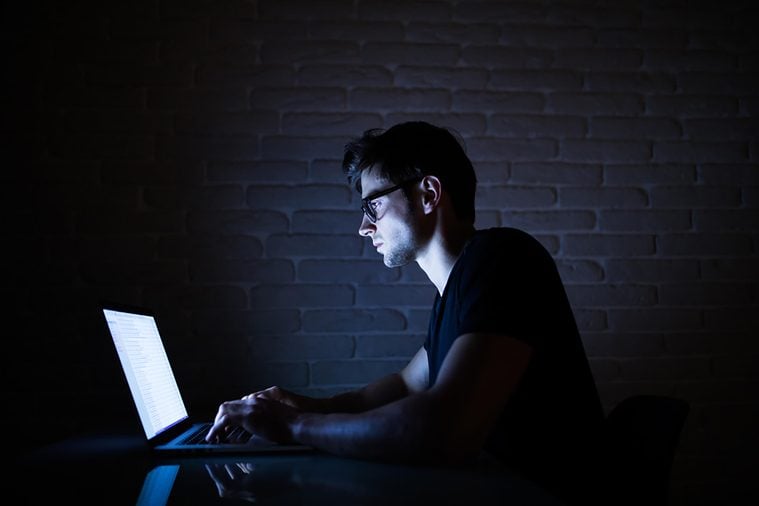The Blue Light from Your Electronic Devices Actually Has a Hidden Benefit, According to Science
Updated: Mar. 16, 2022
Blue light can mess with your sleep-wake cycle, causing all kinds of problems. But blue light isn't all bad. In fact, a new study reveals a hidden benefit that can improve not only your sense of well-being, but also your relationships.
 Blue light—the kind emitted by smartphones, tablets, laptops, and many other electronic devices, has been getting a bad rap because it’s been scientifically proven to suppress melatonin, which can mess with our ability to fall asleep and stay asleep. In fact, sleep experts suggest you avoid looking at these devices during the hours before bedtime. While there are a variety of ways you can avoid blue light, a new study published in the journal, PLOS One, suggests that maybe you should think twice before doing so.
Blue light—the kind emitted by smartphones, tablets, laptops, and many other electronic devices, has been getting a bad rap because it’s been scientifically proven to suppress melatonin, which can mess with our ability to fall asleep and stay asleep. In fact, sleep experts suggest you avoid looking at these devices during the hours before bedtime. While there are a variety of ways you can avoid blue light, a new study published in the journal, PLOS One, suggests that maybe you should think twice before doing so.
Specifically, the study, which came out of the Brain-Computer Interface Lab at the University of Granada, suggests that blue light can help you relax after you’ve experienced acute psychological stress—think what you might experience following an argument with a friend or loved one. What makes the findings particularly compelling is that they’re based on objectively measurable physiological responses to stress, whereas the prior research regarding the way blue light affects emotions involved only subjective perception of emotions.
For the study, the researchers recruited 12 healthy adults between the ages of 18 and 37. All 12 were subjected to acute psychological stress (via a method known as the Montreal Imaging Stress Task, aka MIST, which involves doing mathematical calculations under socially stressful circumstances). Afterwards, a relaxation session was conducted in a “chromatherapy” room (one that uses light to bring about physical and other changes). For six of the people the study was conducted under blue light and for the other six, it was conducted under white light.
Diverse bio-signals, such as heart rate and brain activity, were measured throughout the whole session (by means of an electrocardiogram and an electroencephalogram, respectively). What the researchers found was that those in the blue-light group relaxed three times faster than those in the white-light group (one minute versus three and a half). “Although it could seem a small fraction of time,” the study authors explain, these findings can be useful in a clinical environment. “Psychologists and other experts that use lighting in their therapies could benefit from them.” In addition, the findings may be useful in educational environments and in daily life, although further research on a larger scale is still needed.
In the meantime, here are eight little changes you can make today for better sleep tonight.
